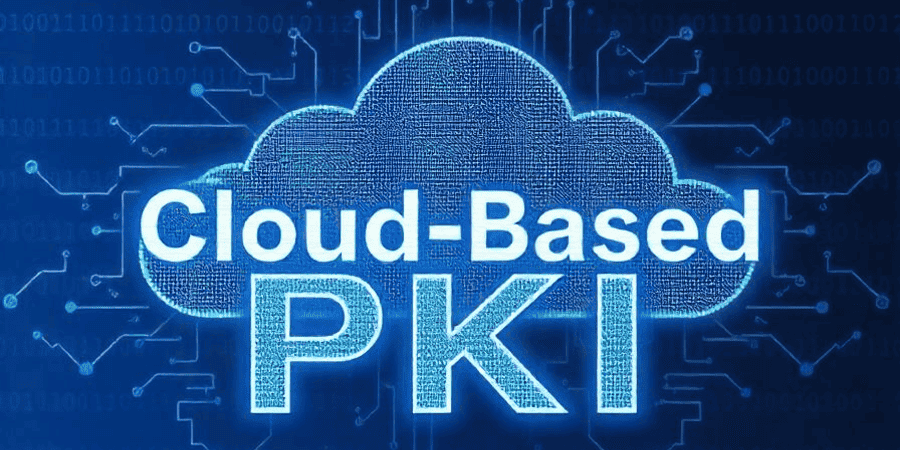Certificates, Education Center
What is Certificate Scanning?

Certificates, Education Center

Imagine you have a trusted friend who double-checks everything before you make a decision. In the digital world, certificate scanning is somewhat similar. It’s a process where specialized tools or software examine digital certificates to ensure their validity, location, security, and compliance with industry standards. Certificate scanning helps identify potential vulnerabilities, misconfigurations, or fraudulent certificates that could compromise online interactions.
Certificate Validation
Just like you’d verify the authenticity of a product before buying it, certificate scanning validates the legitimacy of digital certificates. It checks if the certificate was issued by a trusted CA and if it’s not expired or revoked.
Certificate Chain Examination
Digital certificates often form chains, where one certificate vouches for another’s authenticity. Certificate scanning ensures this chain is unbroken and all the certificates involved are valid.
Vulnerability Detection
Certificate scanning tools look for vulnerabilities in certificates that cybercriminals might exploit. These vulnerabilities could result from outdated algorithms, weak encryption, or other flaws.Compliance Check
Industries and standards bodies set guidelines for digital certificates. Certificate scanning verifies whether certificates adhere to these rules and regulations, ensuring a consistent and secure online environment.
Revocation Check
Certificate scanning monitors for revoked certificates. Revocation could occur due to security breaches or other issues, and using a revoked certificate can be risky.
Preventing Data Breaches
By identifying weak or compromised certificates, scanning helps prevent potential data breaches, safeguarding sensitive information. Moreover, it also plays a crucial role in preventing network outages caused by certificate issues, ensuring uninterrupted and secure communication.
Maintaining Trust
Certificate scanning ensures the trustworthiness of online platforms. When you see “https://” or a padlock icon in your browser, you can trust that your connection is secure.
Mitigating Risks
Regular scanning minimizes the chances of falling victim to cyberattacks, such as Man-in-the-Middle attacks, where an attacker intercepts your communication.
Regulatory Compliance
Many industries must comply with secure communications regulations. Certificate scanning assists in meeting these requirements.
Proactive Security
Rather than waiting for a security incident to occur, certificate scanning provides proactive security by addressing vulnerabilities before they can be exploited.
Certificate discovery is a critical component of certificate scanning, and its importance lies in bolstering security and ensuring compliance within network and cloud environments. Here’s why certificate discovery is essential:
Identifying Vulnerabilities
Certificates play a vital role in securing network communication. However, they can become weak points that attackers exploit if not managed properly. Certificate discovery helps identify vulnerabilities, such as expired or improperly configured certificates, that can be targeted by malicious actors.
Preventing Data Breaches
By revealing weak or compromised certificates, certificate scanning with effective discovery mechanisms helps prevent potential data breaches. It safeguards sensitive information by ensuring that certificates are up-to-date and properly configured.
Ensuring Regulatory Compliance
Many industries and organizations are subject to regulatory requirements that mandate the proper management of digital certificates. Failure to comply with these regulations can result in penalties. Certificate discovery assists in meeting these compliance standards by ensuring the visibility and management of all certificates.
Avoiding Service Disruption
Expired or misconfigured certificates can lead to service disruptions, causing inconvenience to users and potential financial losses for businesses. Certificate discovery allows organizations to proactively address certificate issues, preventing unexpected downtime.
Enhancing Trust
In the digital world, trust is paramount. Users trust secure websites and applications with their data. Certificate discovery ensures that the certificates used are legitimate and valid, enhancing trust and credibility in users’ eyes.
Efficient Resource Management
Many organizations have numerous certificates across various servers and devices. Manual tracking and managing these certificates can be resource-intensive and error-prone.
Certificate discovery streamlines this process, making it more efficient and reducing the risk of oversights.
Certificate discovery is a pivotal aspect of maintaining a secure digital environment. It involves the identification and verification of certificates within a network or cloud infrastructure. Two primary modes for conducting certificate discovery are – unauthenticated and authenticated scans. Each mode has its own distinct characteristics and benefits.
The unauthenticated network scan is a certificate discovery mode that operates without authentication credentials. This method involves scanning an IP range, subnet, or URL to uncover certificates present on various IP-Port combinations within the network. This scan method effectively identifies certificates that openly respond to requests without requiring specific access credentials.
In contrast, authenticated device scans are employed when certain devices or applications hold certificates and only reveal them under specific conditions. These certificates are not easily detectable through a simple network scan. To discover such certificates, the configuration of network devices, including load balancers, firewalls, and web servers, is thoroughly examined using the authentication credentials of these devices. This approach allows for identifying certificates that remain hidden during unauthenticated scans.
When it comes to cloud-based environments, authenticated cloud account scans provide an efficient means of certificate discovery. By securely accessing the cloud account through proper authentication and authorization, the scan gains visibility into all resources utilizing certificates and the internal certificate store. This method effectively reveals most certificates utilized within the designated cloud account.
Certificate Authority (CA) accounts represent another avenue for discovering certificates issued for organizations. However, correlating these certificates with specific devices and applications requires manual effort unless alternative methods lead to their discovery.
Certificate scanning can be initiated either manually or on a scheduled basis, ensuring regular monitoring and maintenance of the network’s security posture. This scanning capability extends to both on-premises and cloud networks, providing a versatile solution for diverse environments. Users can customize scan types, determine whether to scan the entire network or specific segments and adjust the scan intensity according to their requirements.
The results of certificate scans are conveniently displayed through comprehensive dashboards, enabling users to view essential insights at their convenience. Additionally, reports can be generated and emailed to network administrators, security architects, and the broader IT team. This dissemination of information facilitates prompt action and collaboration among stakeholders, enhancing the network’s overall security.
Certificate Scanning is a fundamental practice for ensuring the security and integrity of digital certificates within an organization. It serves as a proactive measure to enhance security by identifying vulnerabilities and weaknesses in the certificate infrastructure.
Certificate scanning helps mitigate risks associated with expired or misconfigured certificates and aids in compliance adherence, ensuring that organizations meet regulatory standards and industry-specific requirements. By maintaining an up-to-date and well-managed inventory of certificates, organizations can protect against security breaches, data leaks, and service disruptions, ultimately bolstering their overall cybersecurity posture.
Encryption Consulting provides a specialized Certificate Lifecycle management solution CertSecure Manager. From discovery and inventory to issuance, deployment, renewal, revocation, and reporting. CertSecure provides an all-encompassing solution. Intelligent report generation, alerting, automation, automatic deployment onto servers, and certificate enrollment add layers of sophistication, making it a versatile and intelligent asset.

February 14, 2025

January 24, 2025